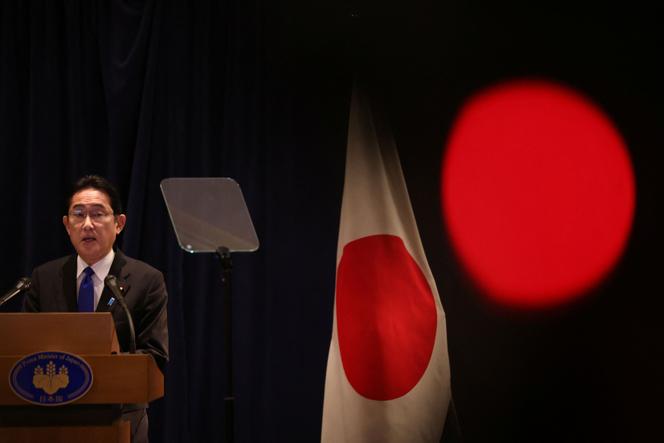


Japan's political stability is certainly surprising. The dominant Liberal Democratic Party (LDP), has been in office practically without interruption since 1955. However, this stability has a price: It masks an underbelly that has recently been brought to light by a vast public prosecutor's investigation into the slush funds of lawmakers. The looming crisis is "the kind that happens once in a generation," said the Japanese political analyst Tobias Harris.
The mid-December "purge" of four ministers and five vice-ministers implicated in this scandal is aggravating the unpopularity of Prime Minister Fumio Kishida. Nearly 80% of those questioned in a poll conducted by the daily Mainichi Shimbun said they disapproved of the prime minister, who is also the LDP's president. Without public support, Kishida has little chance of imposing reforms and his potential successors are already lining up.
The revelations that 179 LDP elected representatives had links with the controversial Unification Church (Moon sect) in 2022 coupled with the slush funds scandal has further eroded public trust in the political system whose stability is partly due to the high abstention rate in elections, indicative of deep-seated mistrust among voters. Nearly half of all Japanese no longer go to the polls.
Japanese politics has not been spared from large-scale financial scandals in the past. This time though the affair does not center around personal enrichment or corruption but around the hidden financing of the LDP itself, the central element in the way the political power operates.
Created in 1955 after the merger of the two conservative parties (Liberal and Democratic) to face up to the then-powerful Left, the LDP set up an effective political machine based on factions formed around a powerful party figure who united elected representatives under their leadership. This "factionalism" is combined with strong collusion with the upper echelons of government and big business. This "iron triangle" is what enabled the LDP to dominate Japanese politics for decades.
The competing factions, which reflect a variety of political sensibilities (from the revisionist right advocating the rehabilitation of imperial Japan to hard-line liberalism), fuel an internal debate. Competing for positions, they cooperate to retain power in the LDP.
Their members maintain financing networks linked to their clientele (private donors, companies, fund-raising receptions, etc.). Some of these funds are used to enrich the electoral terrain, while others are used to reinforce a lawmaker's position in the power dynamics within their faction, a system that inherently requires loyalty to its leader. Ministerial reshuffles ensure a rotation reflecting the balance of power between factions, guaranteeing a kind of internal changeover. To maintain internal stability, the LDP leadership makes sure that the benefits of power are distributed among the factions.
You have 50% of this article left to read. The rest is for subscribers only.
